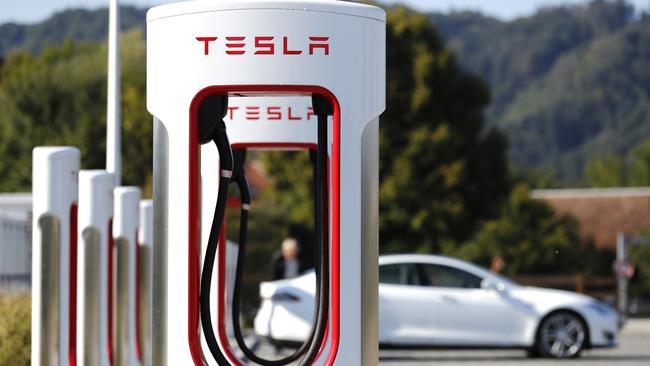AGL sweetens EV offering as demand accelerates
AGL Energy will offer customers who own an electric vehicle cheaper overnight charging, as it hopes to tap into the growing market.

AGL Energy will offer customers who own an electric vehicle cheaper overnight charging, as the near 200-year old company accelerates its ambition to tap the lucrative market.
EV demand is growing rapidly in Australia as cheaper models trickle into the market, an influx that threatens to reshape the country’s traditional refuelling model dominated currently by companies such as Ampol and Viva Energy.
It remains unclear whether EV drivers will continue to use roadside charging stations - which Viva and Ampol are rolling out - or prefer to charge at home, which would open a lucrative new market to electricity retailers.
AGL said research conducted in partnership with the Australian Renewable Energy Agency (ARENA) over the past three years show that most home vehicle charging occurs overnight, and it will now offer EV owning customers a lower than off-peak rate between midnight and 6am.
Customers will also have the flexibility to charge at any time of the day and receive a discounted rate, recognising the importance of having a fully charged car to help alleviate range anxiety.
AGL’s chief customer officer Jo Egan said the refreshed EV charging plan demonstrates AGL’s commitment to helping drive the uptake of EVs and the electrification of transport.
“We know our customers charge while they sleep and we have remodelled our EV energy plan to give them an affordable price to charge at the most convenient time,” Ms Egan said.
The revamped customer plan is the second EV development AGL has implemented in recent months.
AGL in June partnered with BP to roll out a refreshed tariff plan for owners of zero emission cars. Customers on the plan receive discounts against the default market offer, and these customers will also receive a reduction if they use a BP pulse service station.
Under the terms of the deal, should an AGL customer on the EV plan need to charge away from their home, they will receive a discount of more than 10 per cent when they use one of BP pulse’s charging stations.
AGL hopes to position itself to tap into the growing EV market. Demand for EVs is widely expected to grow, from about 8 per cent of all new sales currently, but there is lingering uncertainty about whether consumers will charge at home, voiding any need for traditional-style petrol stations, or will prefer superfast charging at sites that were once entirely petrol bowsers.
There will still be demand from drivers that are on longer journeys and from those who live in apartments and do not have access to charging infrastructure, but the market is likely to be smaller especially if EV owners can use their rooftop solar free of charge.
Competition for on-the-road charging infrastructure is also going to be strong as traditional players move quickly in a bid to position themselves for the rise of EVs.
With intense competition, major players such as Viva Energy are expanding convenience offerings, hoping to lure customers to charge their vehicles while eating or shopping.




To join the conversation, please log in. Don't have an account? Register
Join the conversation, you are commenting as Logout